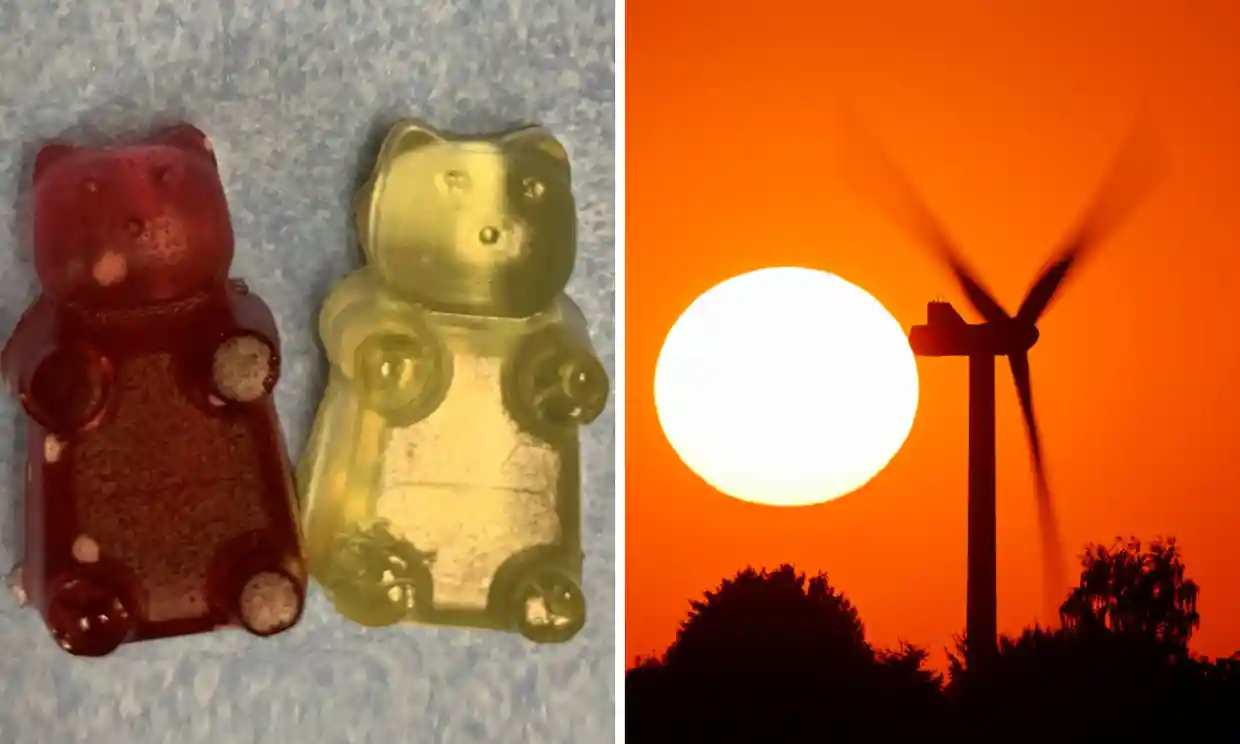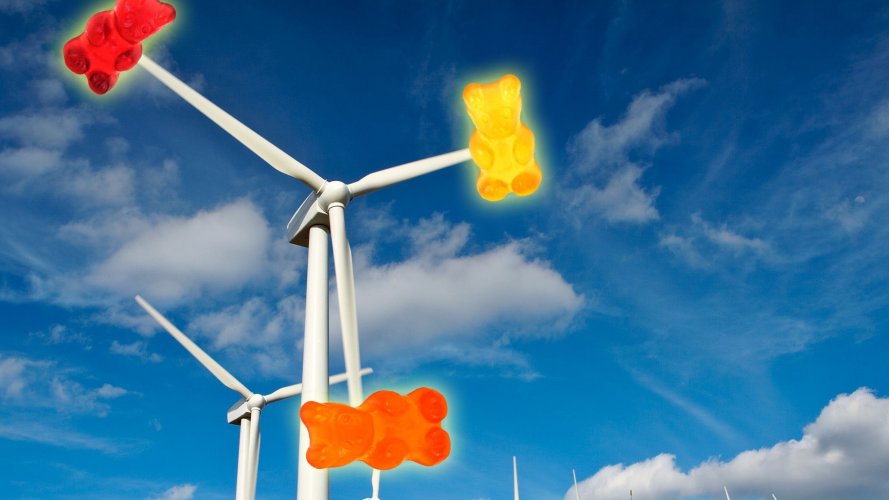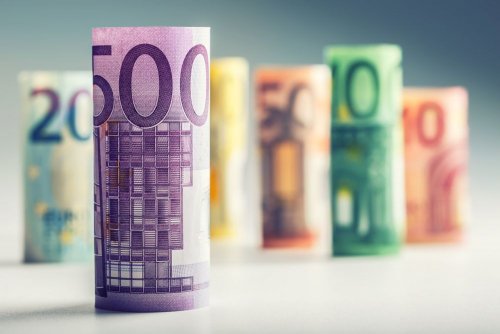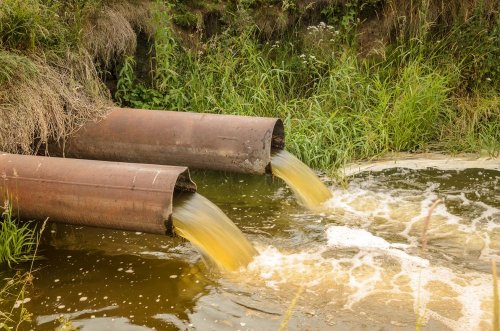Researchers at the University of Michigan, USA, have created a composite resin for wind turbine blades that, at the end of its useful life, can be recycled into chewing candies and sports drinks.
This will help in the fight against waste, reports The Guardian.
Usually, blades are made of fiberglass, which makes their disposal difficult. Therefore, many such elements end up in landfills.
Thanks to the new technology, glass fiber is combined with a polymer of vegetable and synthetic origin. When treated with an alkaline solution, potassium lactate can be obtained from such shovels.
"We recovered food-grade potassium lactate and used it to make gummy bears that I ate," said John Dorgan, one of the researchers.

Two gummy bears made from a composite resin that can be used to make wind turbine blades
Alkaline cleavage also releases polymethyl methacrylate, a common acrylic material used in car windows and taillights.
"The beauty of our resin system is that at the end of the use cycle we can dissolve it and that frees it from whatever matrix it's in so it can be used again and again in an endless cycle. That's the goal of the circular economy," Dorgan added.
As EcoPolitic before, Ireland for building bridges will use old wind generators.





